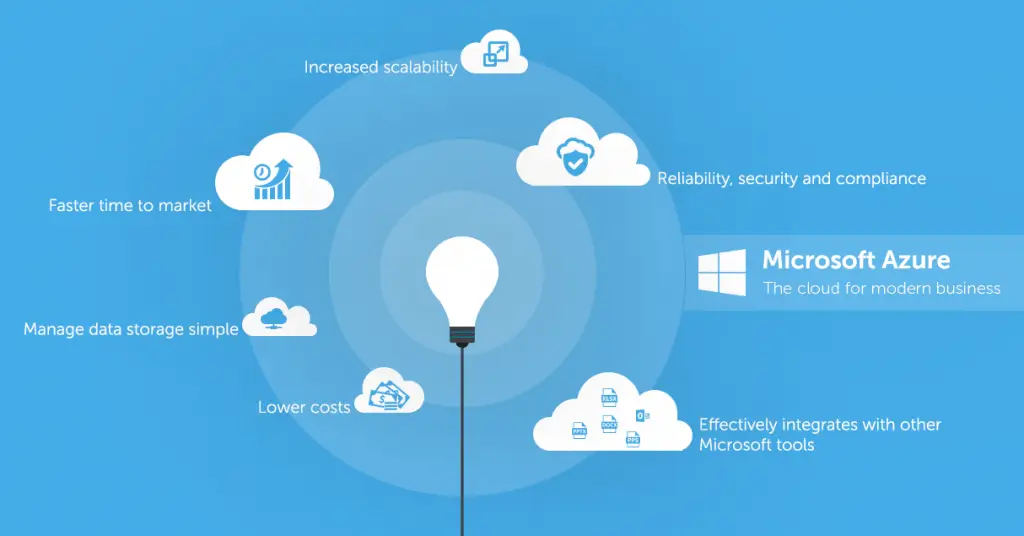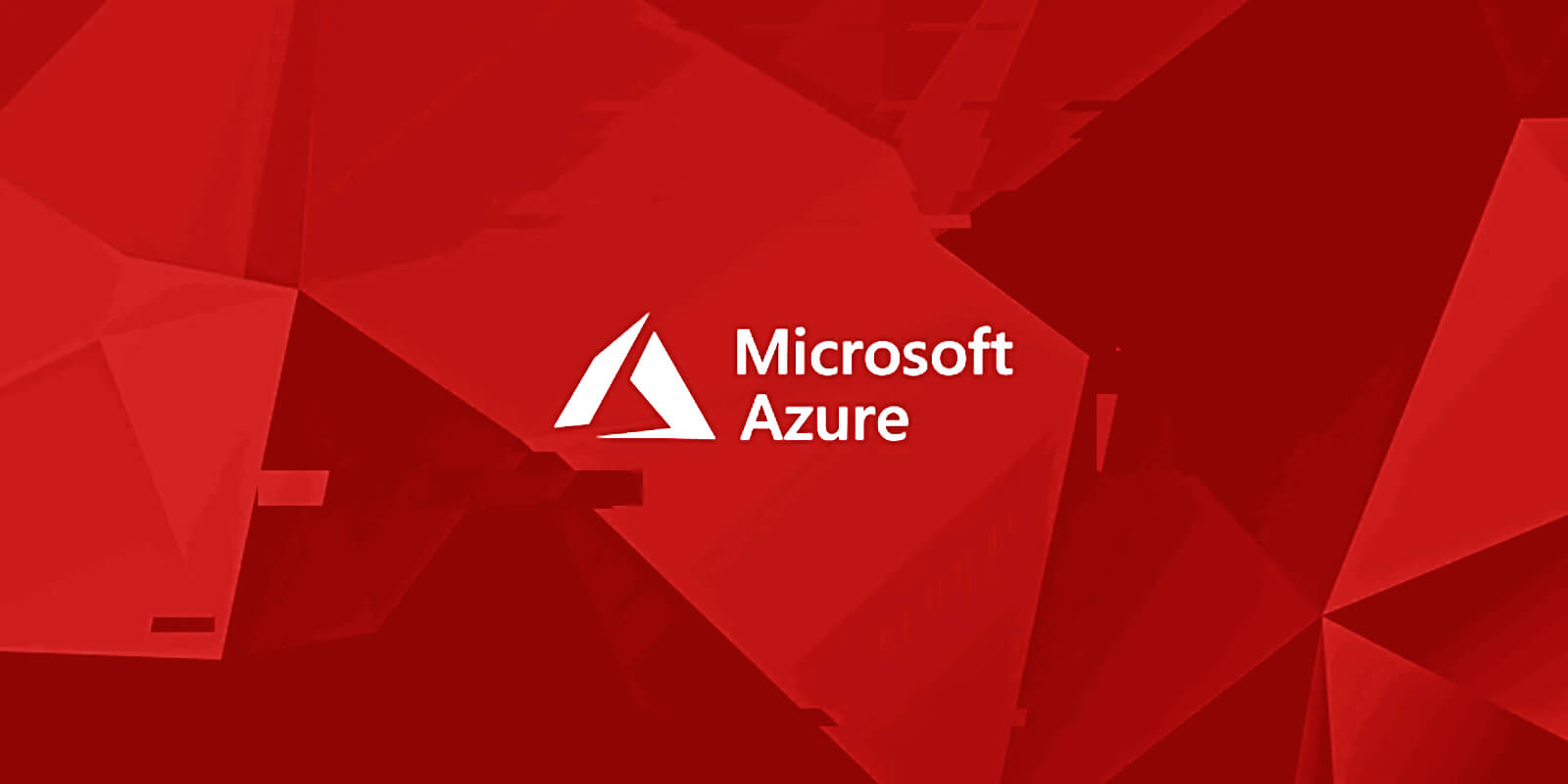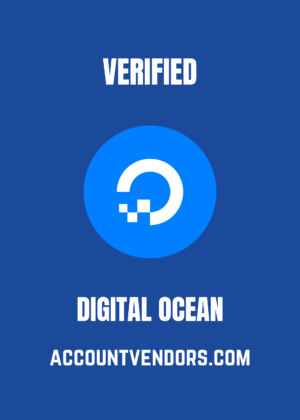Buy Verified Azure Accounts

Azure (formerly Microsoft Azure) is a comprehensive cloud computing platform offered by Microsoft that provides various services including computing power, storage space, networking connections, databases, machine learning analytics as well as Internet of Things connectivity through global data centres. Businesses and individuals can utilise the capabilities offered by Azure to design, deploy and manage applications or services via this global network of data centers.
Key features and services offered by Azure include:
Virtual Machines (VMs): Azure offers customizable virtual machines running Windows or Linux to enable users to easily deploy and manage applications within its cloud ecosystem.
Storage Solutions in Azure include Blob Storage for unstructured data, Table Storage for NoSQL tables and Queue Storage to support reliable messaging between components as well as File Storage to facilitate fully managed file shares.
Database Services in Azure include SQL Database, Cosmos DB (a globally distributed multi-model database service), and Azure Database for MySQL/PostgreSQL compatibility.
Networking: Azure offers various networking services, such as Virtual Network for creating private and isolated networks; Load Balancer to distribute network traffic between servers; and VPN Gateway connecting on-premise networks to Azure.
Identity and Access Management (IAM): Azure Active Directory provides Identity and Access Management services, enabling users to securely sign in and gain access to resources.
App Services: These include services like Azure App Service for creating, deploying and scaling web apps, mobile application backends and RESTful APIs.
AI and Machine Learning: Azure provides services that facilitate artificial intelligence and machine learning, including Azure Machine Learning and Azure Cognitive Services that feature vision, speech, language processing and decision-making APIs.
DevOps: Azure DevOps provides tools to aid source control, build automation, release management and more – providing tools that support the DevOps lifecycle. Internet of Things (IoT) Suite allows users to connect, monitor and manage IoT devices remotely via Azure IoT Suite.
Analytics and Big Data Solutions: Azure offers services like Azure Synapse Analytics (formerly SQL Data Warehouse), HDInsight and Databricks as solutions for big data analysis solutions.
Azure supports a hybrid cloud model, enabling organisations to integrate on-premises infrastructure into its services via an on/off switch. Azure is widely utilised by businesses of all sizes due to its flexibility, scalability and range of offerings.
Benefit of Buy Verified Azure Account Online

Microsoft Azure can bring many advantages for individuals, businesses and organisations of all kinds. Some key benefits are listed here.
Azure makes scaling resources up or down easy by offering users the capability of doing just this, meaning only pay for what resources you use and can quickly adapt to changes in workload.
Azure Provides Global Coverage: Azure boasts an expansive global datacenter network, giving users access to low-latency access and improved performance when it comes to deployment of applications and services nearer their end-users.
Azure Offers Diverse Services: Azure’s extensive range of services encompass computing, storage, databases, machine learning analytics networking IoT solutions allowing for users to build and deploy an array of apps or solutions easily and affordably.
Hybrid Cloud Capabilities: Azure offers organisations an innovative hybrid cloud model, providing flexibility in connecting on-premise data centres to the cloud for easier management of existing investments in infrastructure and costs. This benefit is invaluable to businesses that currently utilise infrastructure investments that may already exist on site.
Security and Compliance: Azure employs stringent security measures such as encryption, identity and access management, threat detection and compliance certifications to provide maximum protection for businesses with specific compliance needs. In accordance with various industry standards and regulations, it satisfies these needs, making Azure ideal for meeting compliance demands of every kind.
Cost Efficiency: Azure’s pay-as-you-go pricing model means users only pay for what resources they consume compared to traditional on-premises infrastructure where resources may be overprovisioned, potentially saving costs compared to overprovisioned resources that might exist on premises.
Integration With Microsoft Products: Azure offers seamless integration with other Microsoft products such as Windows Server, Active Directory or Office 365; making the transition into cloud easier for organisations who already use these software platforms.
Developer Productivity: Azure supports numerous programming languages, frameworks and operating systems as well as providing tools and services that enhance developer productivity – such as Azure DevOps for continuous integration and delivery.
AI and Machine Learning Services: Azure offers several artificial intelligence and machine learning services that make it simpler for developers to incorporate advanced analytics and AI features into their apps.
Disaster Recovery and Business Continuity: Azure provides tools and services for backup, disaster recovery, high availability and data resilience management to ensure business continuity and data resilience for organisations of any kind.
Community and Support: Being one of the premier cloud service providers, Azure boasts an active community. Furthermore, Microsoft provides comprehensive support services, documentation resources and training courses to aid users with deploying and managing applications on Azure.
Azure has gained considerable traction among organisations looking for greater flexibility, efficiency, and innovation via cloud computing. All its benefits together contribute to its immense popularity as an option that should be seriously considered when choosing cloud services like Microsoft Azure for business needs.
Verified Azure Account For Sale

There are multiple steps involved with setting up an Azure account. Here is a general outline to get you going:
Step 1: Visit Azure Portal : When in doubt about where or what platform you should access first, go directly to the Azure Portal on any web browser and follow directions found therein (Step 4 below for Windows 7, 5, etc…).
Step 2: Log In or Create an Account
If you already have an existing Microsoft account (e.g. Outlook or Xbox Live), login using your existing credentials; otherwise create one now by following these steps.
Create your new Microsoft account by clicking “Create one!” and following the steps to set it up.
Step 3: Access Azure Portal
Once signed in, you’ll be taken directly to the Azure Portal dashboard where Step 4 (Access Subscriptions ) awaits.
On the left sidebar, click “Subscriptions.” You’ll then be able to view or create existing or new subscriptions by following its prompts if needed. For newcomers, following these directions could prompt creation.
Step 5: Fill Out Required Information
To save time during Azure free trials with limited resources for an established duration. In step 6, verification takes place.
Microsoft may ask that you verify your identity via phone or email; follow their prompts to complete this step in their verification process.
Step 7: Establish a Resource Group
Once your subscription has been created, the next step should typically involve creating a “Resource Group.” A resource Group serves as a logical container for resources deployed into Azure and can be created by clicking “Resource groups” from the left-sidebar and selecting “Add”. This creates your new group.
Step 8: Explore Azure Services Once you’ve established both a subscription and resource group, the next step should be exploring and deploying various Azure services that meet your requirements based on what services best suit them; these may include Virtual Machines, Storage Accounts and Databases as examples of such offerings.
Important Reminders:
Azure offers free trials or tiers with limited resources that lasts a certain amount of time; when opening an account be sure to review what free offerings may exist at that time.
Keep your subscription information, including ID, close at hand as you will require them for managing resources and billing purposes.
It should be noted that this is only a high-level overview, with details depending on updates to Azure Portal interface and official documentation or support to obtain accurate, up-to-date information on how best to configure Azure services for yourself. Here is some further reading: Pros and Cons of Azure Services for You.
Pros and Cons of Microsoft Azure
Pros of Microsoft Azure:
Comprehensive Service Offering: Azure offers an expansive suite of cloud services for computing, storage, databases, networking, AI/ML/analytics/and more to meet a range of business requirements.
Scalability and Flexibility: Azure allows users to scale resources up or down according to demand, offering greater cost efficiency while being tailored specifically for businesses that experience fluctuating workloads. Businesses will find particular benefit in Azure’s dynamic scalability when managing fluctuating workloads.
Azure Offers Global Data Center Presence: With access to over 250 datacenters worldwide, users are able to deploy applications and services closer to end-users for reduced latency and improved performance.
Azure Offers Hybrid Cloud Capabilities: Azure provides businesses with existing infrastructure investments the option of seamlessly integrating on-premise data centers into its hybrid cloud model for easy management of both on-site data storage solutions and the public cloud. This model gives them greater protection while still benefiting from agility of deployment that comes from being integrated seamlessly between on-premises facilities and public clouds.
Security and Compliance: Azure implements stringent security measures such as encryption, identity and access management, threat detection and compliance certifications to meet industry standards and regulations.
Integrity within Microsoft Ecosystem: Azure offers seamless integration with Microsoft products such as Windows Server, Active Directory and Office 365, making the switch to cloud easier for organisations already familiar with using these solutions.
Developer Productivity: Azure provides support for multiple programming languages, frameworks and operating systems; in addition, Azure DevOps helps enhance developer productivity with continuous integration and delivery capabilities.
AI and Machine Learning Services: Azure offers several artificial intelligence and machine learning services that make it simpler for developers to incorporate advanced analytics and AI features into their apps.
Community and Support: Microsoft provides Azure users with extensive community engagement opportunities and extensive support services, documentation and training materials in order to assist with deployment and management of applications on its cloud infrastructure.
Cons of Microsoft Azure:
Complexity for Beginners: With so much on offer in Azure’s extensive menu of services and features, newcomers may become overwhelmed when trying to learn its vast services and features. Navigating and understanding it may take some time.
Cost Management: Though Azure’s pay-as-you-go model can be cost-efficient, users must remain diligent when managing and optimising resource usage to avoid unexpected charges.
Document and User Interface Changes: Due to Azure’s frequent updates, documentation and the user interface may change over time resulting in confusion for those relying on certain instructions or tutorials for guidance.
Azure, like most cloud providers, continually introduces new features and services – something which helps organisations keep abreast of modernity but may present organisations with difficulties keeping pace.
Lock-In Risk: Like any cloud provider, Azure does present some degree of lock-in risk, making moving apps and data out of Azure to another platform challenging.
Although Azure boasts an expansive global reach, some regions may feature limited data centre facilities as compared to competitors.
Latency Concerns: Depending on where data centres are situated, users in some regions could experience latency that negatively impacts real-time applications and services.
Customization Issues in Microsoft Azure: For organisations that have specific and unique requirements, highly tailored configurations and setups in Azure may become complex to manage.
Prior to selecting Azure as their cloud service provider, organisations should carefully assess their specific needs, priorities, and existing infrastructure. Regular monitoring usage and costs is vital in realising the full potential of cloud services like Azure.
FAQs of Microsoft Azure
Not at all! Below are a few frequently asked questions (FAQs) regarding Azure: Buy Microsoft Azure.
What Is Microsoft Azure?
Azure from Microsoft is a cloud computing platform offering computing power, storage capacity, databases, networking connections and analytics allowing users to build, deploy and manage applications and services within its platform.
What distinguishes Microsoft Azure from other cloud providers?
Azure competes directly against AWS and Google Cloud in offering comparable services; their differences lie mainly in specific features, pricing models, or integration with other products.
What Is An Microsoft Azure Subscription?
An Azure subscription is a billing and licensing agreement between Microsoft and its clients that grants access to Azure services and resources, including billing. Users may hold multiple subscriptions under one account. Azure Services FAQs: For further inquiries on what an Azure subscription entails.
What Are Microsoft Azure Virtual Machines (VMs)?
Azure VMs provide flexible computing resources in the cloud that enable users to run Windows or Linux-based apps efficiently on either PCs or laptops, according to their performance and storage needs. Users may customise each VM according to performance or storage considerations as desired.
What Is Microsoft Azure Blob Storage?
Azure Blob Storage is Microsoft’s object storage service in the cloud that’s designed to store and manage unstructured data like documents, images and videos.
What Is Microsoft Azure SQL Database?
Azure SQL Database is a fully managed relational database service from Microsoft that allows users to deploy, manage, and scale relational databases in Azure Cloud environments. To get started with Azure SQL Database: For help getting started with the service please refer to Getting Started FAQs or visit here
How can I open an Microsoft Azure account?
You can set up your Azure account by visiting the Azure Portal, signing in using your Microsoft account, and following the steps to establish your new subscription plan.
Are Microsoft Azure services free to try out?
Absolutely – Azure often provides free trials of certain resources for an allotted duration to give users the opportunity to test various Azure offerings during this trial period. Users may explore and assess various services during their free trials with Microsoft. Security & Compliance FAQs:
Are You Asking, How Secure Is Microsoft Azure?
Azure employs comprehensive security measures such as encryption, identity and access management, threat detection and compliance certifications in accordance with various industry standards and regulations.
Can Microsoft Azure meet my regulatory-compliance requirements?
Azure offers services and features designed to assist users in meeting various regulatory compliance standards, from Azure Policy enforcement tools to compliance documentation available within its interfaces. Users may utilise pricing and cost management FAQs provided by Microsoft for further guidance in meeting various compliance standards.
How Does Microsoft Azure Pricing Work?
Azure uses a pay-as-you-go pricing model whereby users are charged according to their actual resource consumption, along with cost management tools designed to optimise and control spend.
Does Microsoft Azure Offer Any Tools to Estimate and Control Costs?
Azure does offer tools such as its Pricing Calculator that enable users to estimate costs before deploying resources and budget alerts via Microsoft Azure Cost Management for tracking spending. Additionally, users may set budget alerts using budget tracking capabilities of this solution and track spending against their budget alerts using Cost Management to stay within spending boundaries.





Reviews
There are no reviews yet.